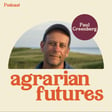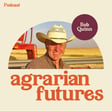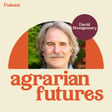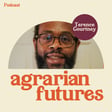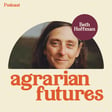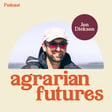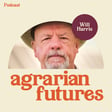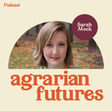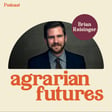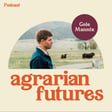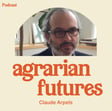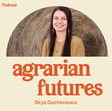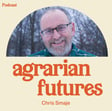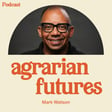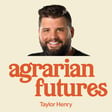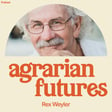
Healing Communities and Landscapes through Ranching with Carlyle Stewart
Carlyle Stewart is living many of the core ideas behind Agrarian Futures. Like many of us, he grew up without a close connection to farming or our agricultural landscapes, but that didn’t stop him from taking a massive leap to move across the country and establish himself as a skilled cattle rancher. He fuses these skills with wise-beyond-his-years thoughtfulness about what it means to steward the land, lift up rural communities, and confront the complicated - and often violent - history of westward expansion and ranching.
This conversation is bursting with insights from his time spent on the land as well as his background in divinity school and as a community organizer.
In this episode, we cover:
- Carlyle’s eclectic journey from Detroit, to divinity school, to life as a cattle rancher.
- Finding purpose, meaning, and satisfaction through a deeper connection with the land.
- The ins and outs of ranching and managing cattle in a regenerative fashion.
- The challenges of building a sustainable economic future in ranching and creative ways of getting the next generation back on the land
- The importance of a more direct relationship with your food.
- Reconciling the complicated, violent history of western expansion and ranching, with the importance in stewarding these landscapes.
- New approaches for communal land ownership and stewardship to support rural, black, and indigenous communities.
- And much more...
You can follow Carlyle on Instagram.
More about Carlyle:
Carlyle Stewart, originally from the Metro Area of Detroit, Michigan. Is a teacher, minister, writer, rancher, horseman, and land manager. His first major exposure to ranching in the intermountain west was through the Quivira Coalitions New Agrarian Program. He has worked on various cow/calf and yearling operations throughout Montana and New Mexico. He is in the process of developing his own grazing operation that will be centered around his passions for agricultural mentorship and healthy land stewardship. He is currently living and working in Northern New Mexico.
Agrarian Futures is produced by Alexandre Miller, who also wrote our theme song.
